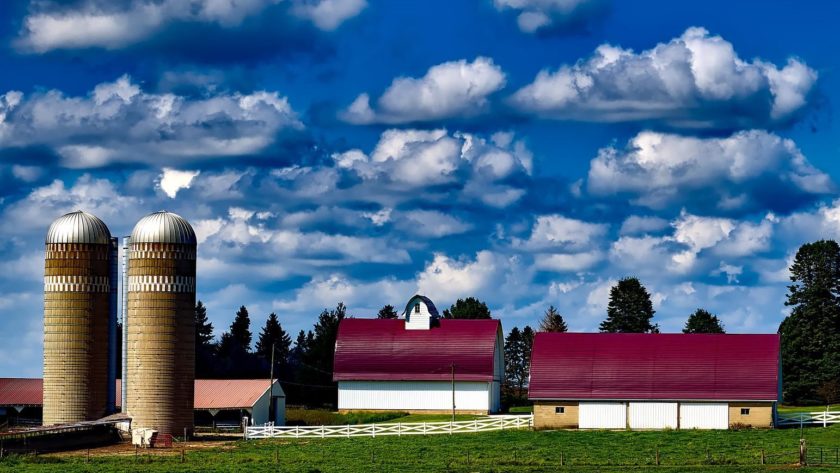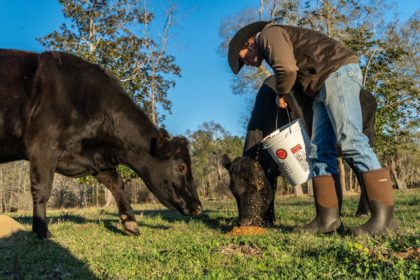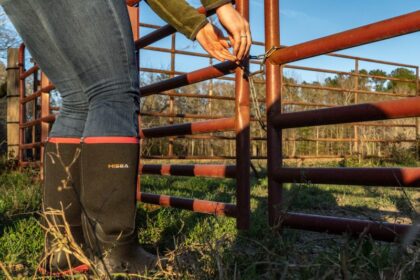The short answer is unquestionable yes!
You may not even call yourself a farmer if you don’t employ at least a few of the cutting-edge practices and tools the world has in store for you because the agricultural sector has evolved drastically over the past few decades.
Nowadays, the farm silo is one piece of equipment needed for most farmhouses, so if you want to increase your income this year, you should start looking into buying one right now.
What is a farm silo?
A silo is a structure used to store bulk materials in the most basic and straightforward terms. In agriculture, silos store grain, powders, fermented feed (known as silage), and animal slurry. Other industries utilize silos for bulk storage of coal, cement, sand, woodchips, metal refuse, food goods, and sawdust.
If you own or work on a farm, you know how critical it is to keep your goods safe and secure. Silos are a low-cost strategy to keep your farm organized and ready for the next harvest. It is critical to maintaining grains dry in this form of a silo to avoid losses; they are great for short-term storage but require continual care and maintenance.
Tips to Increase Your Farm Productivity
After understanding what a farm silo is and how it might benefit you. This is necessary to understand the few farming tips you must employ to produce healthy plants and seeds before transferring them into silos.
- Proper Seeding and Planting: All producers must remember that each crop has unique planting and spacing needs to survive. Planting seeds or seedlings too close together might result in malformed plants and poor crop aeration.
- Fertilizer Application: In many situations, using fertilizers wisely increases crop yields significantly. Uncontrolled and uncontrolled use, on the other hand, can affect the soil, plant tissues, and the ecosystem. Any fertilizer application should always be documented in crop data.
- Optimal Timing & Temperatures for Crop Growth: Preparing the soil for planting is essential. Soil preparation should take place at specific times before planting, depending on the crop.
- Harvesting: Harvesting at the right time is equally important for achieving the best results, and optimal harvesting times will vary depending on the type of crops you are growing. After harvesting, clean grain should be stored in glass jars in a cold, dark place, such as silos.
- Storage in silos: The grains must be stored in silos after harvesting. Silos provide the ease with which they provide ideal storage conditions for grain, that is, control over temperature, insects, molds, and birds, which in extended storage might entail large losses.
- Managing supplies: Farms must have enough feed or grain to meet customer orders. Farmers must manage their stock to achieve this. This includes ensuring their silos are adequately stocked to meet demand and scheduling replenishment deliveries.
What kind of farming boots must you wear in the field?
You can only perform to the best of your ability when you have a strong grip on something. Similar situations arise when working in various locations on a farm when your only reliable source of grip is your boots.
Finding the best farming boots for the field in hot weather is a difficult process since these boots must be breathable and strong enough to keep you on your feet for long periods so that you can complete your work by focusing your energy on the right things. This one has a versatile design that is perfect for any task that requires rain, snow, or mud.

The following are qualities your farm boots must have.
- Material: Choose boots made of at least 5mm neoprene-like HISEA boots, which add comfort, flexibility, and support. The flexible material contours the body’s shape to prevent cramps and skin irritation.
- Design: To handle day-to-day operations, the boot must be designed with vulcanized rubber uppers, a crush-resistant toe, and a cemented grip sole.
- Comfort: Calf-high work boots with a stretch-fit comfort topline that hugs the calf and keeps cold and debris out. Removable EVA footbed sock liners provide additional comfort and support.
- Waterproof: The waterproof lining coils away moisture and perspiration, allowing more air to pass through and keeping the feet dry.
Why Make the HISEA Rubber Boot Your First Choice?
HISEA values farmers above anything else. We provide farmers boots to wear while working in order to increase their comfort, and up to this point, they have never fallen short of our high standards.
The following are reasons why farmers should choose HISEA rubber boots:
- Protection against harmful chemicals, blisters, injuries, and loud machines.
- Protection against burns and hot temperatures.
- Protection against slips and falls.
- It keeps the feet relaxed and comfy.

Summing Up!
Farmers face danger daily and operate with massive trucks, machinery, large animals, and unpredictable terrain. As a result, you should scrutinize the boots to ensure that they are the greatest at protecting you from probable mishaps.
The HISEA farm boots are designed for usage in the field. When wearing customized farmer boots, farmers will benefit from unrivaled comfort, flexibility, and safety.
Visit our website to choose from our selection of HISEA farm and yard boots and place your order right now.





